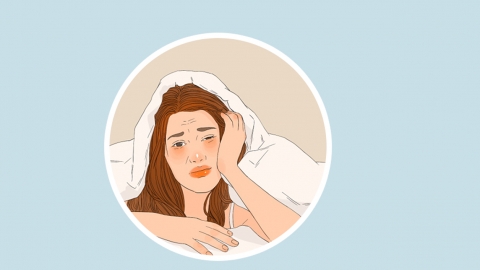What should I do if I become irritable after taking care of my child for a long time?
Generally, prolonged irritability when taking care of a child may be caused by sleep deprivation, exhaustion, neurasthenia, anxiety state, hyperthyroidism, or other reasons. It is recommended to seek medical attention promptly, identify the underlying cause, and improve symptoms through lifestyle adjustments, medication, and other methods under a doctor's guidance. The specific analysis is as follows:

1. Sleep deprivation: Frequent night wakings by the child lead to chronic sleep deficiency in caregivers, resulting in an imbalance of neural excitation in the brain. Coordinate with family members to take turns meeting the child’s nighttime needs. Use the child’s nap time during the day to catch up on sleep, aiming for a total of 5–6 hours of rest daily.
2. Exhaustion: Continuous 24-hour childcare places sustained physical and mental strain. Create a daily task list, break down responsibilities such as feeding and laundry, ask family members to share the load, and reserve 20 minutes each day for relaxation activities like meditation or listening to music.
3. Neurasthenia: Prolonged mental stress can cause nervous system overexcitability, easy fatigue, and reduced emotional control. Follow medical advice to use medications such as oryzanol tablets, vitamin B1 tablets, or Anshen Bushen liquid. Also reduce information overload and avoid excessive exposure to anxiety-inducing parenting content.
4. Anxiety state: Persistent worry about the child’s health, education, and related issues may lead to chronic anxiety, which easily manifests as irritability. Patients should follow medical instructions to use medications such as sertraline hydrochloride tablets, paroxetine tablets, or lorazepam tablets, along with parent-child counseling to relieve psychological stress.
5. Hyperthyroidism: Excessive secretion of thyroid hormones accelerates metabolism, leading to emotional instability, excitability, and anger. Follow medical advice to use medications such as methimazole tablets, propylthiouracil tablets, or metoprolol tartrate tablets to reduce hormone levels.
In daily life, consume more nutrient-rich foods such as eggs, milk, and nuts, and avoid relying on sweets or coffee to combat fatigue. Communicate regularly with other parents to exchange parenting experiences, acknowledge your own emotional needs, release stress in healthy ways, and maintain a positive mindset.




